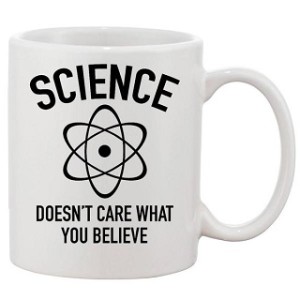Truth Doesn’t Care What You Believe, or What’s Being Written About It

Of course, these conversations face the inescapable reality that, whether we’re talking about voter fraud/suppression, universal health care, environmental issues, or anything else, we’re both completely convinced that the stuff we read on this subject is the truth, and the other side propaganda.
Mom suggested I look at RealClearPolitics, an amalgam of news sources that presents both sides of each issue of importance in our world as it exists today. On the surface, that sounds like a reasonable idea, but upon further reflection, I’m afraid it doesn’t really get us anywhere. That’s because there is truth on an issue that has nothing to do with the preponderance of the news on the subject. The truth isn’t fair and balanced; it is what it is. Aristotle called this the Law of the Excluded Middle and the Law of Non-contradiction.
Take climate change an an example. Suppose I find 50 articles that says that human-caused climate is real and that it’s an existential threat to our civilization, and I find another 50 that says the whole thing is a hoax. The truth isn’t somewhere in the middle. The truth is what the truth is, and that truth is completely unaltered by those with dissenting views or by some consensus of opinions. (This, btw, is why climate scientists refuse to participate in public debates against climate deniers; doing so would imply that there are two legitimate sides to this issue, which, of course, there are not.)
Similarly, significant incidents of voter fraud in the U.S. landscape either are or are not happening. Have I provided a valuable service by providing an equal balance for articles that affirm one position over another?
FWIW, here’s my suggestion to my mom on voter fraud:
If you Google “voter fraud vanishing rare” and spend 1 – 2 minutes on each of the top 4 -5 articles from PBS, Mediamatters, the Brennan Center, etc. you’ll see what I mean.
If you accept these conclusions, you need to ask yourself: Other than voter suppression, what is the motive for voter ID, Trump’s commission to eliminate voter fraud, etc.? I think you’ll conclude, as I have, that there isn’t one. This is why 44 of the 50 states have told Trump to take a hike on this issue. As the ruby red state of Kentucky has said, “There isn’t enough bourbon in Kentucky to get us to even consider this intrusion into the privacy of our people.”
Re: the question of privacy and the fallacy that “If I haven’t done anything wrong, I needn’t care about my privacy,” I hope you’ll check this out.
